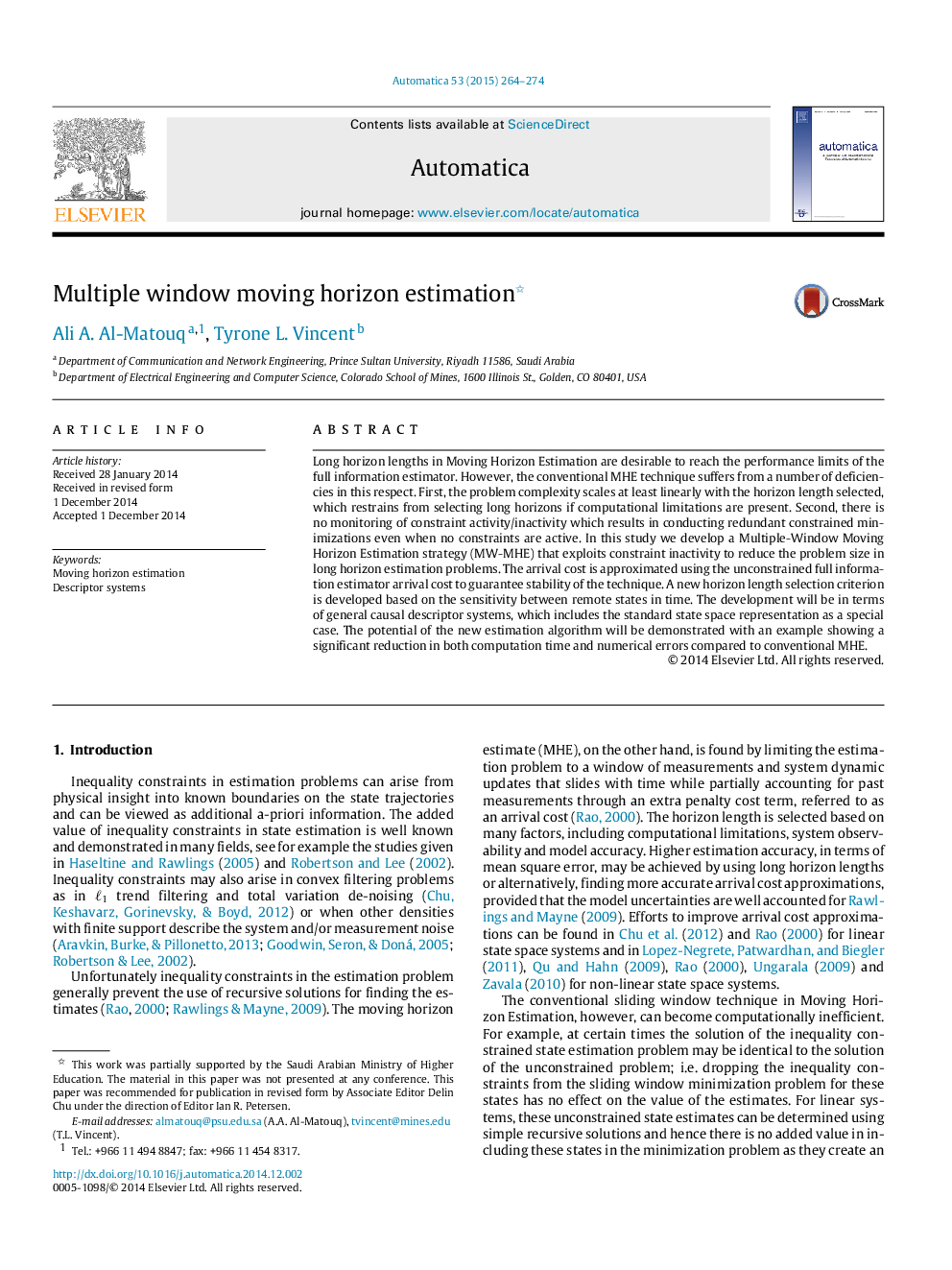| Article ID | Journal | Published Year | Pages | File Type |
|---|---|---|---|---|
| 7109871 | Automatica | 2015 | 11 Pages |
Abstract
Long horizon lengths in Moving Horizon Estimation are desirable to reach the performance limits of the full information estimator. However, the conventional MHE technique suffers from a number of deficiencies in this respect. First, the problem complexity scales at least linearly with the horizon length selected, which restrains from selecting long horizons if computational limitations are present. Second, there is no monitoring of constraint activity/inactivity which results in conducting redundant constrained minimizations even when no constraints are active. In this study we develop a Multiple-Window Moving Horizon Estimation strategy (MW-MHE) that exploits constraint inactivity to reduce the problem size in long horizon estimation problems. The arrival cost is approximated using the unconstrained full information estimator arrival cost to guarantee stability of the technique. A new horizon length selection criterion is developed based on the sensitivity between remote states in time. The development will be in terms of general causal descriptor systems, which includes the standard state space representation as a special case. The potential of the new estimation algorithm will be demonstrated with an example showing a significant reduction in both computation time and numerical errors compared to conventional MHE.
Related Topics
Physical Sciences and Engineering
Engineering
Control and Systems Engineering
Authors
Ali A. Al-Matouq, Tyrone L. Vincent,
